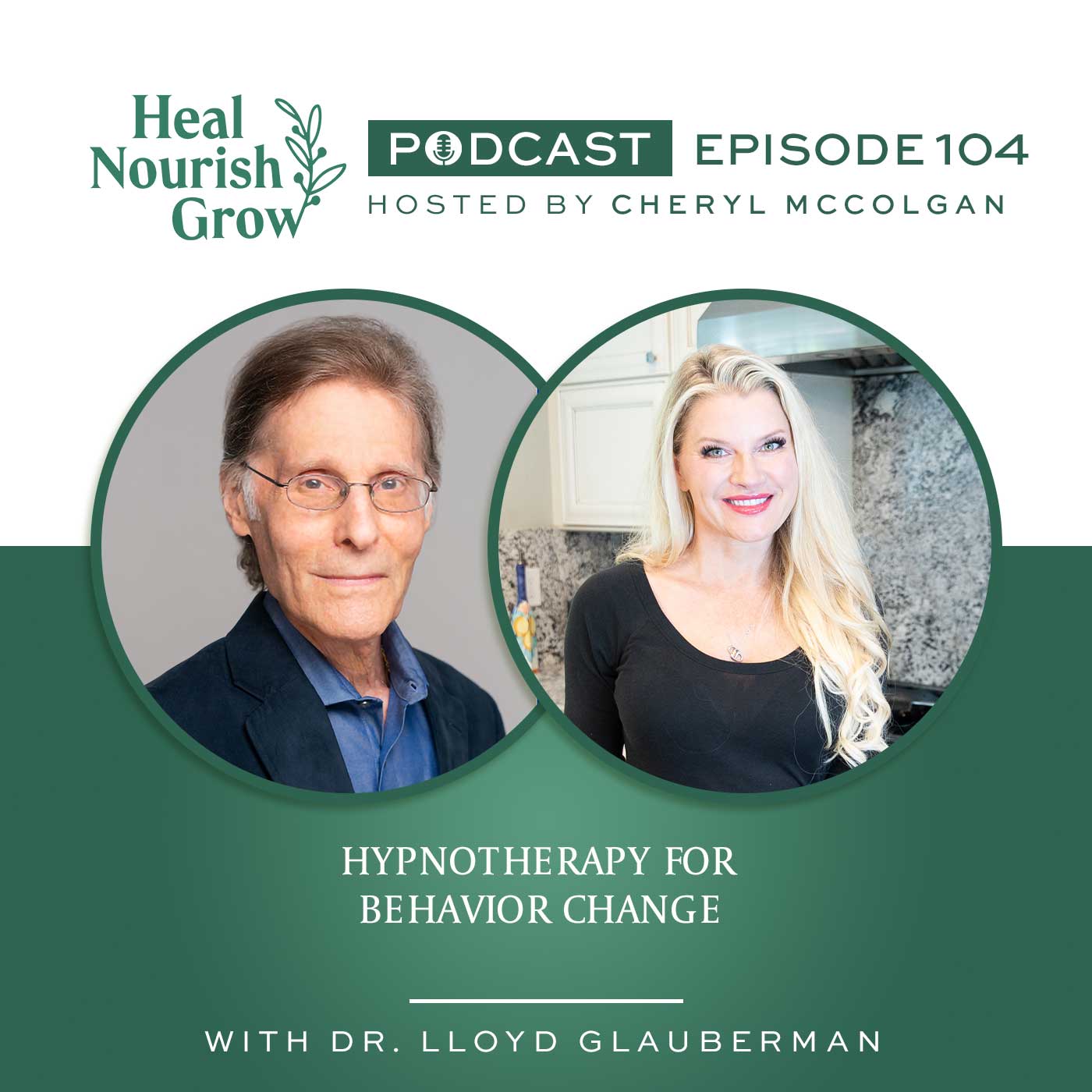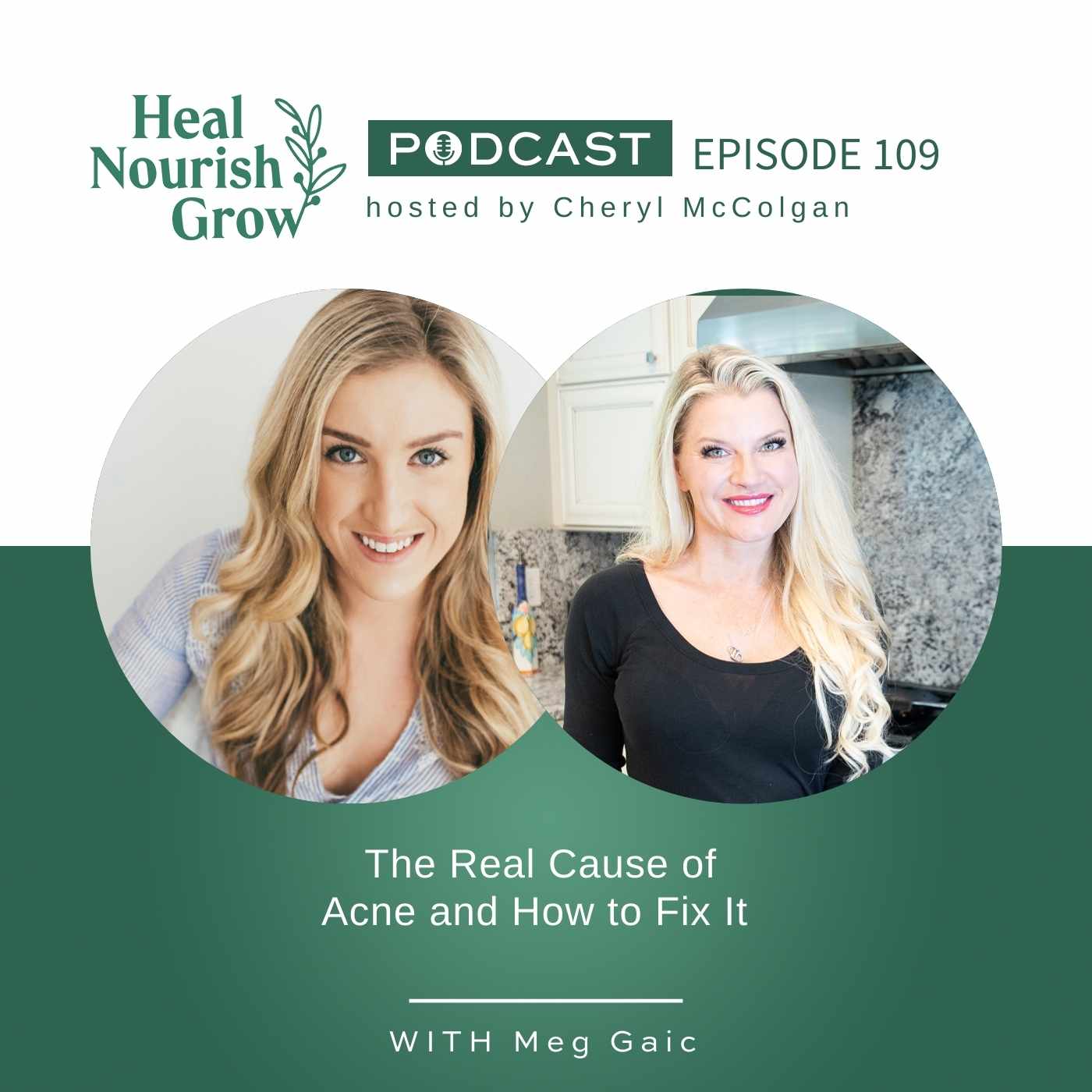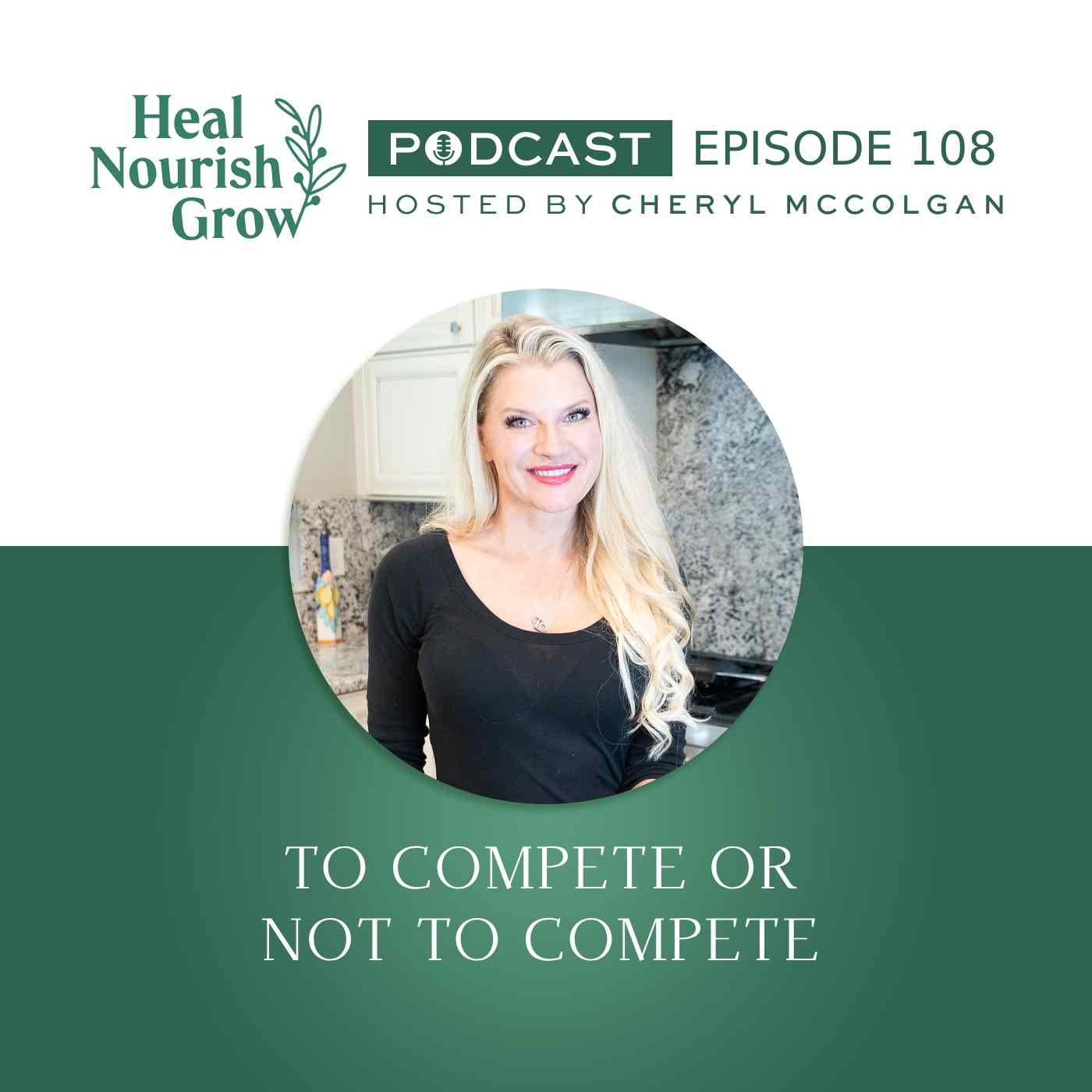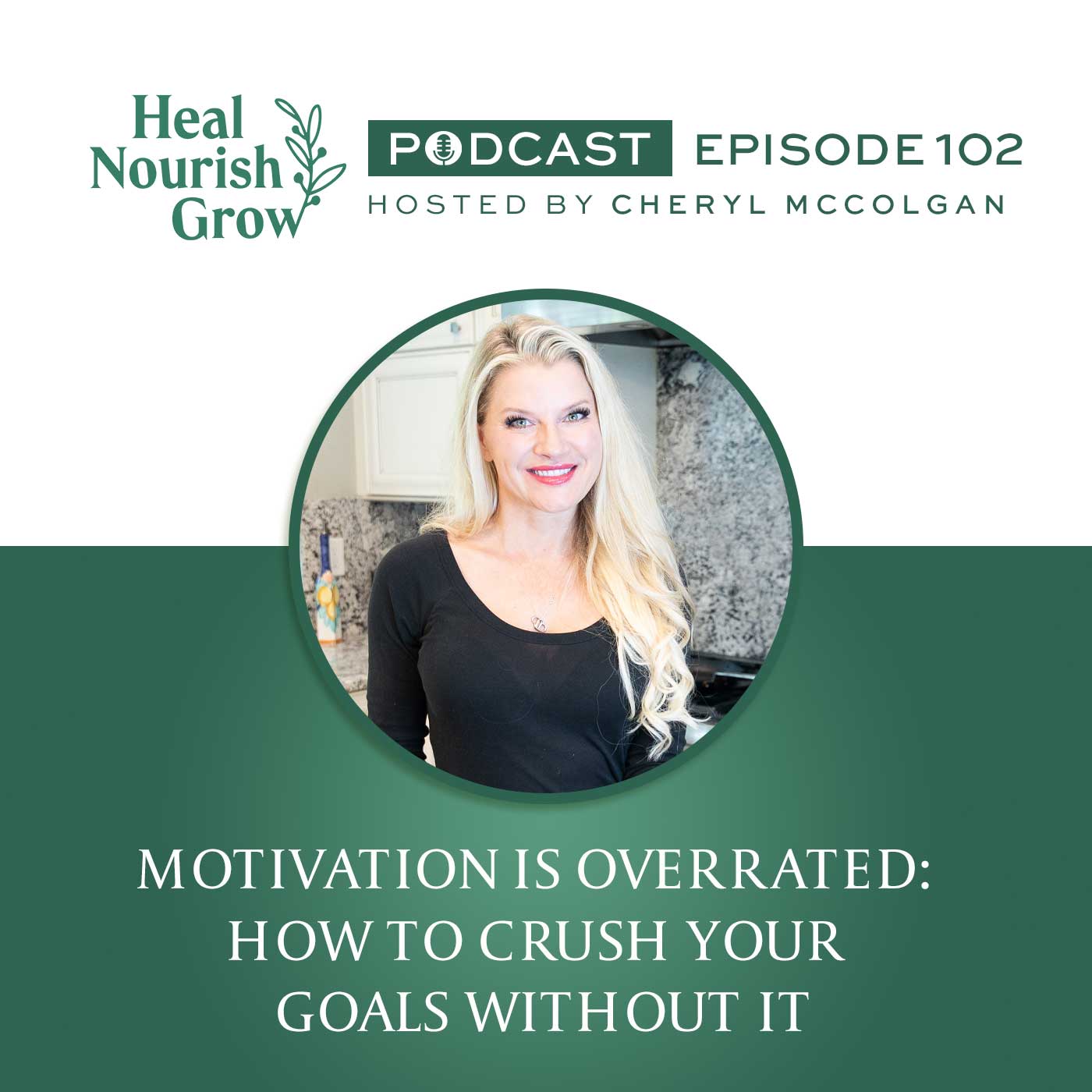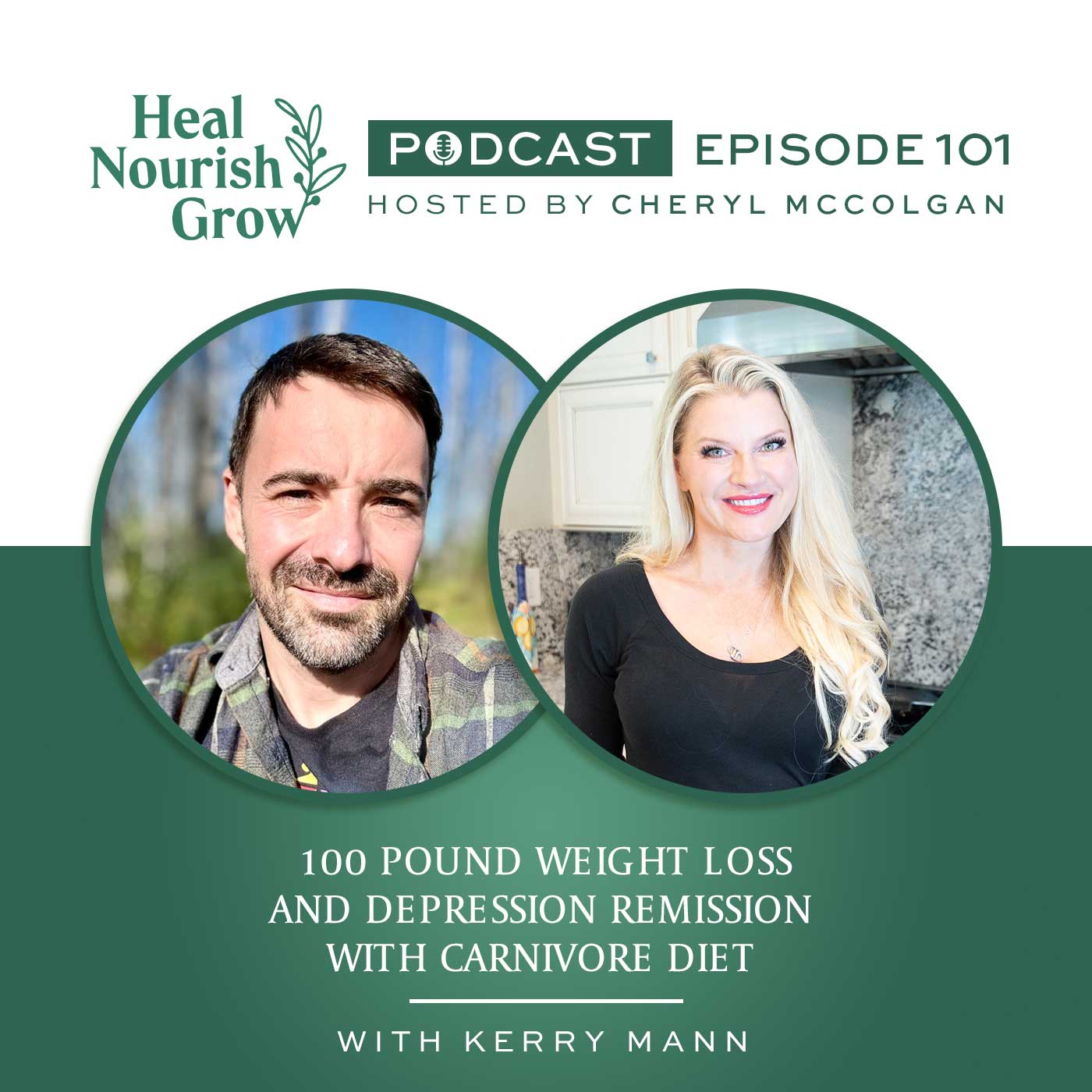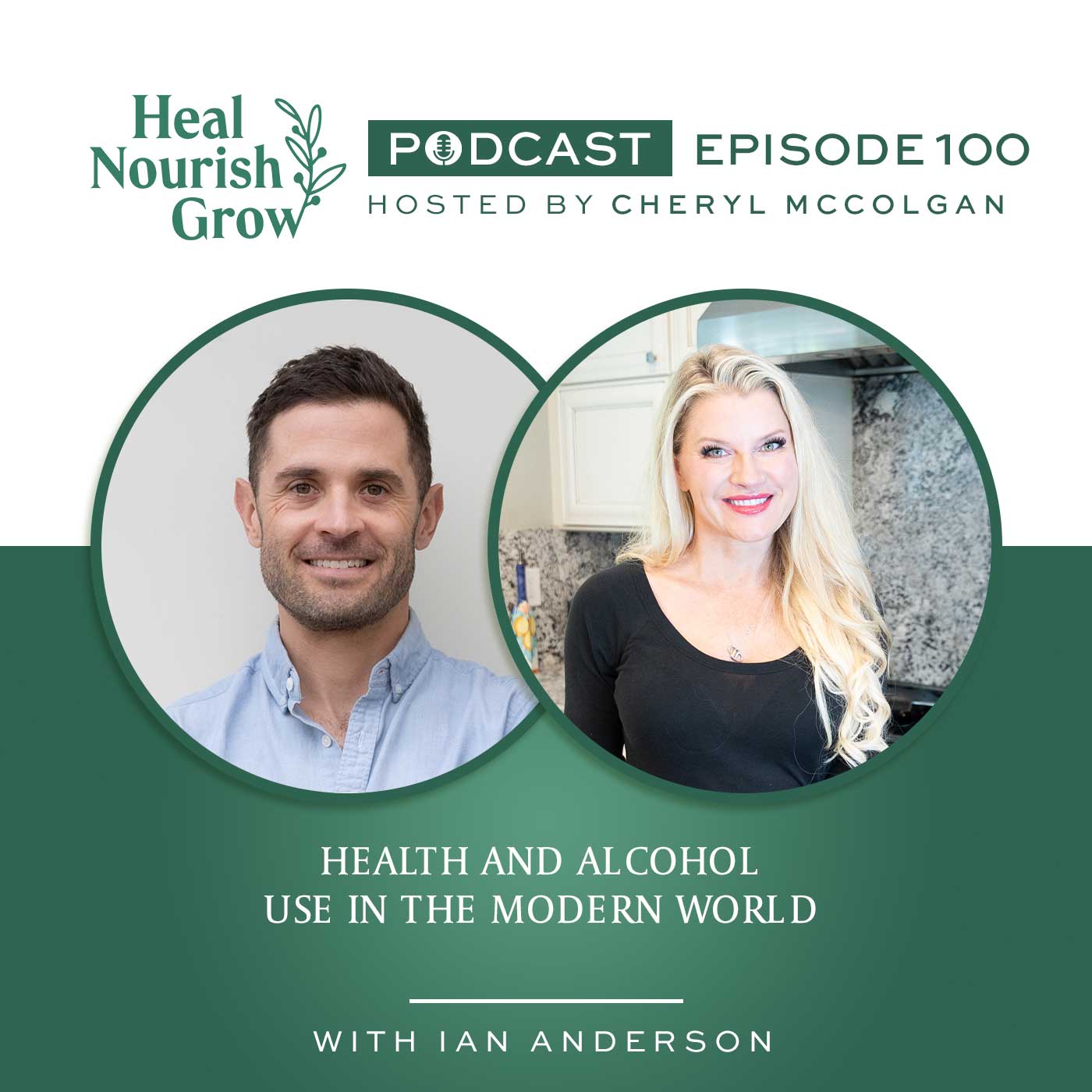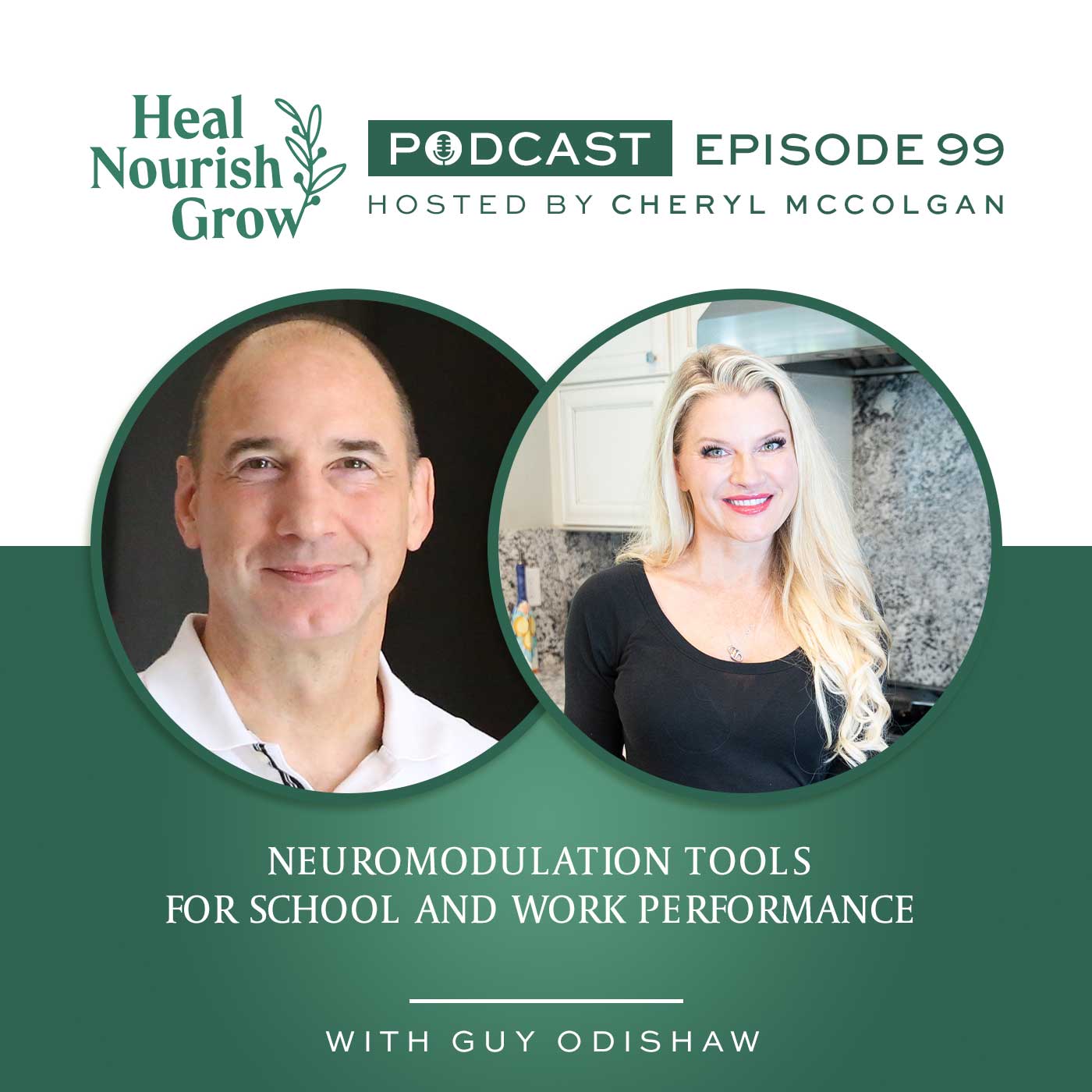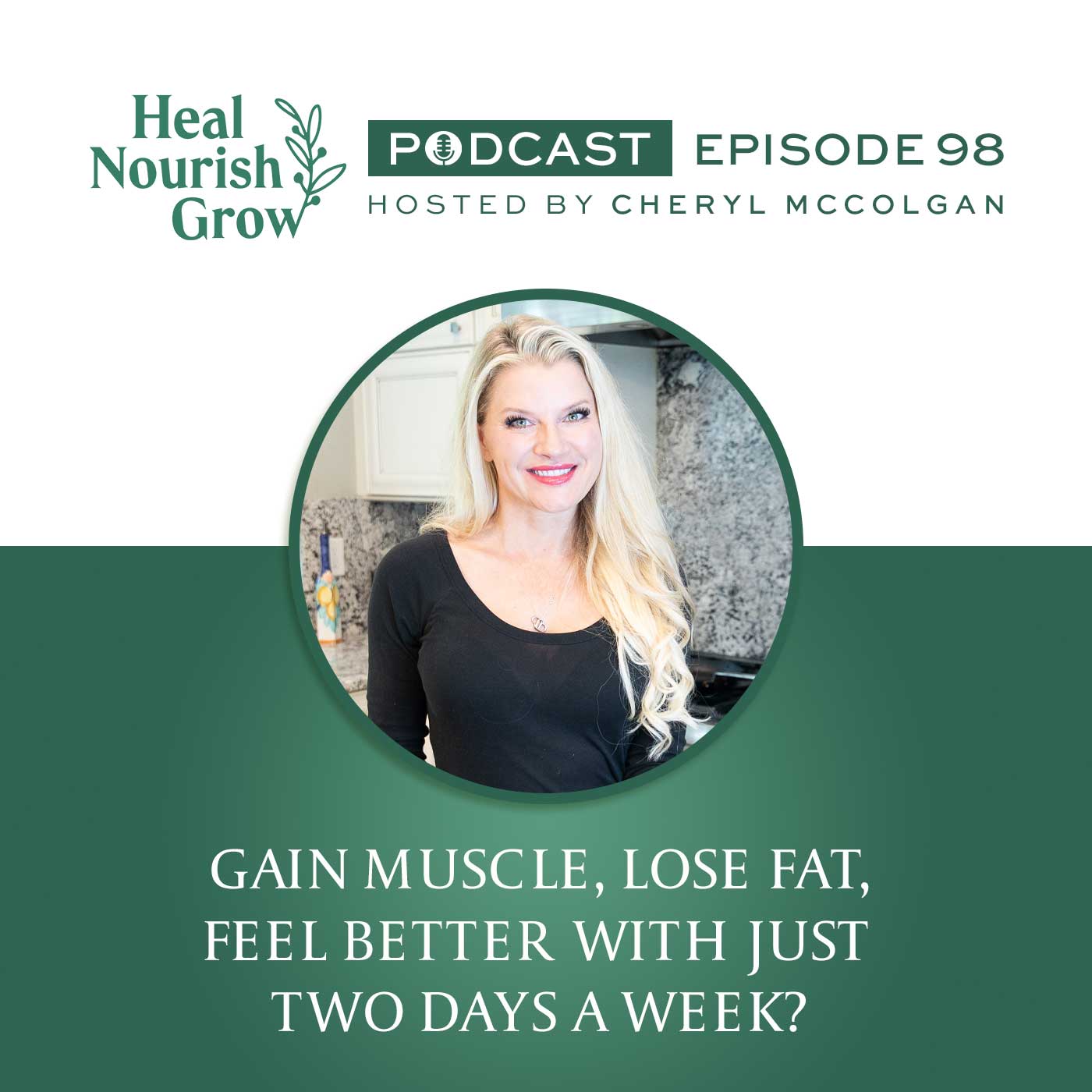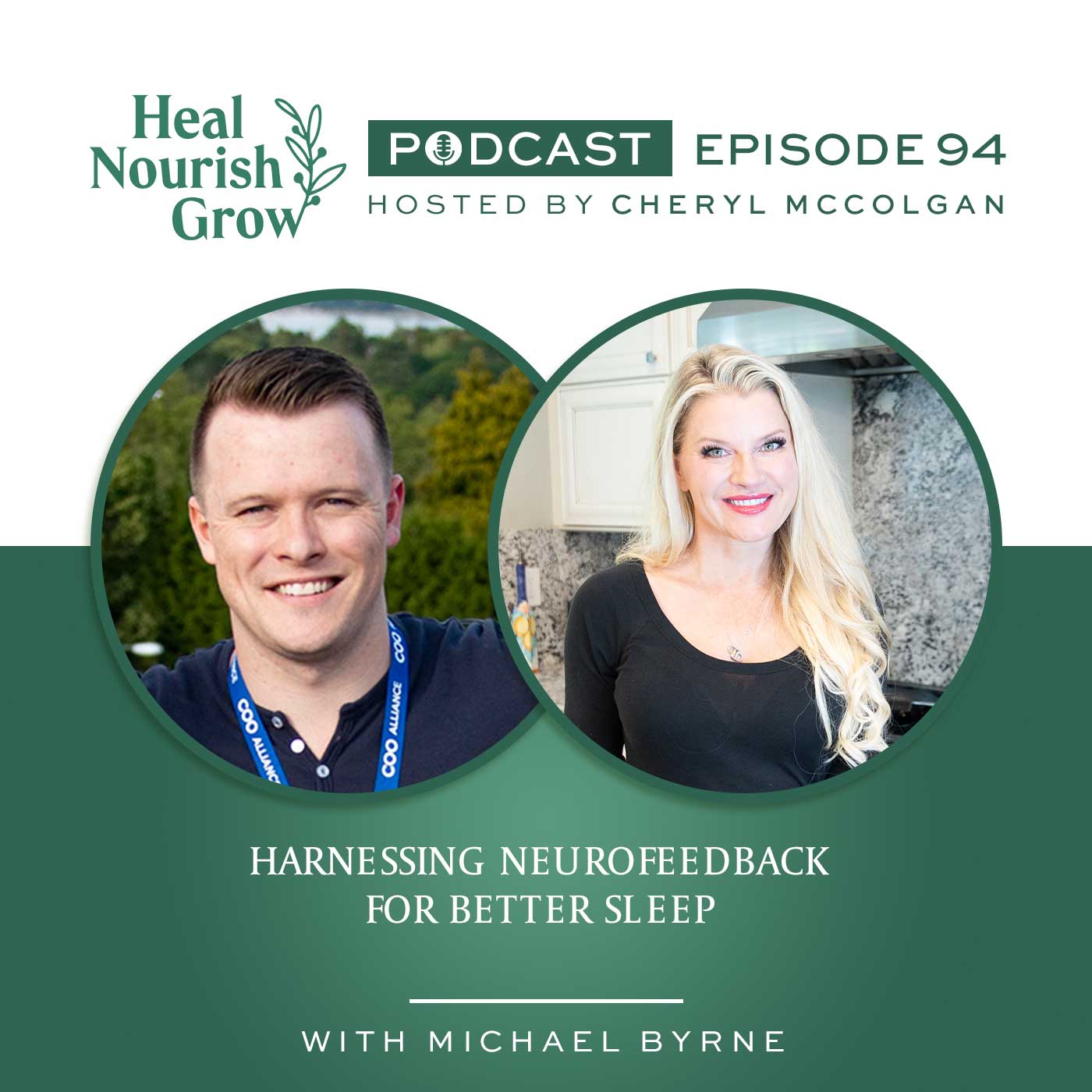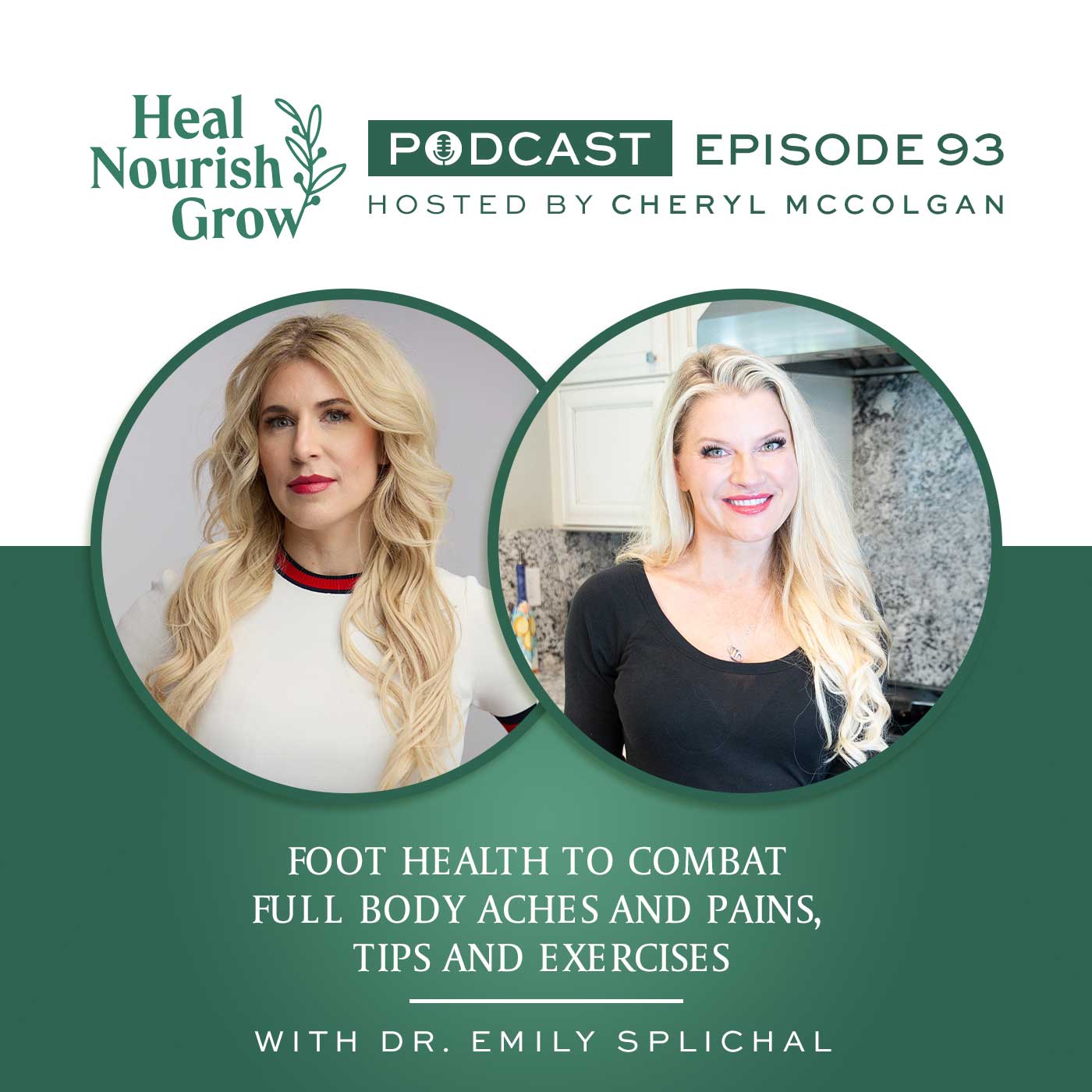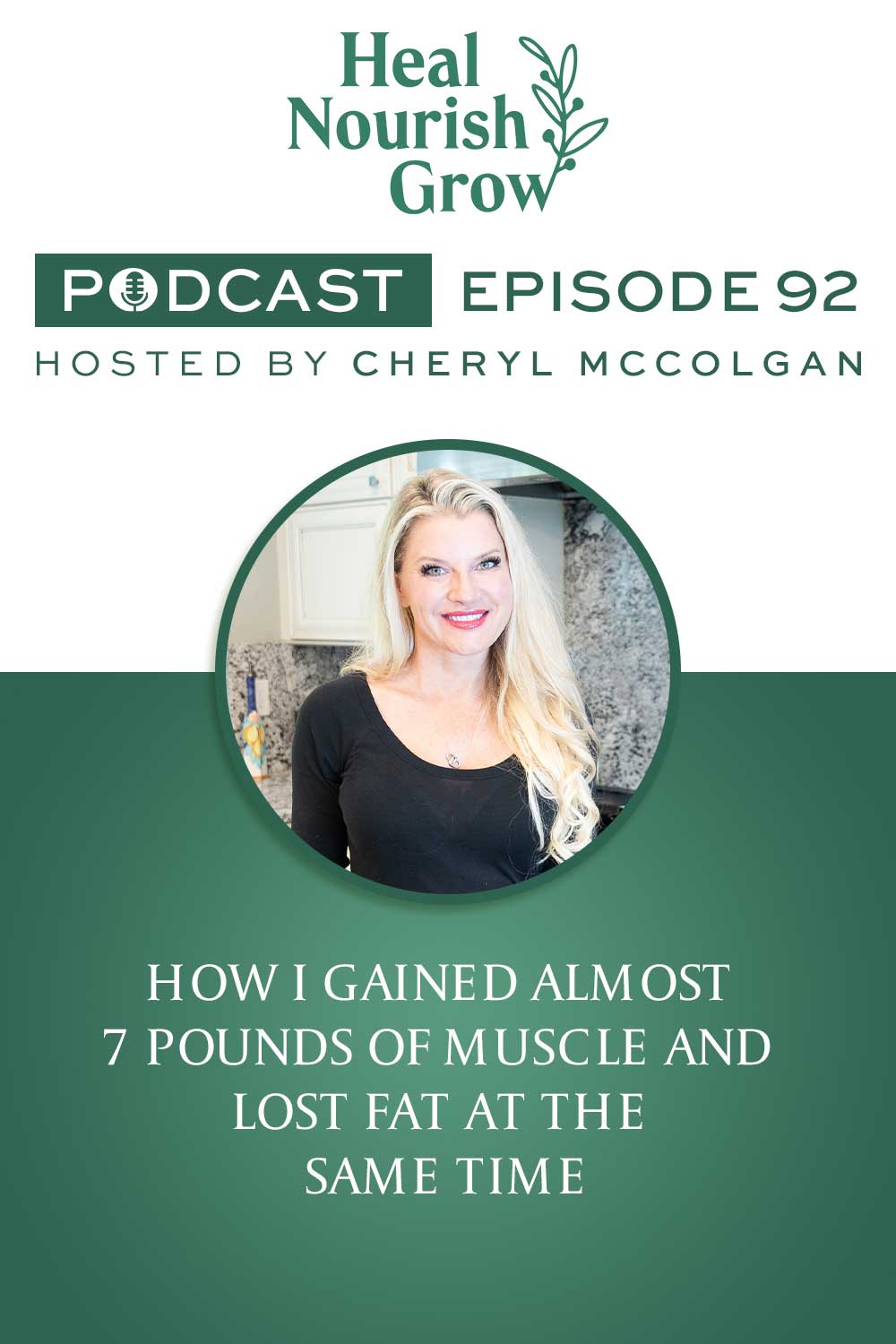Hypnotherapy for Behavior Change
Description
In this episode, Dr. Lloyd Glauberman shares his journey into psychology and hypnotherapy, discussing the importance of sleep, the obesity epidemic, and introduces the concept of lifestyle intelligence. He emphasizes the need for tailored approaches to behavior change and the innovative tools available for personal development, including his app that combines storytelling and hypnosis.
Connect with Dr. Glauberman through his website and you can download his app on the Apple store with a free 30 day trial.
Watch on YouTube
<figure class="wp-block-embed is-type-video is-provider-youtube wp-block-embed-youtube wp-embed-aspect-16-9 wp-has-aspect-ratio">
https://https://youtu.be/QO3fjKBAnyc
</figure>
Disclaimer: Links may contain affiliate links, which means we may get paid a commission at no additional cost to you if you purchase through this page. Read our full disclosure here.
CONNECT WITH CHERYL
Shop all my healthy lifestyle favorites, lots of discounts!
21 Day Fat Loss Kickstart: Make Keto Easy, Take Diet Breaks and Still Lose Weight
Dry Farm Wines, extra bottle for a penny
Wild Pastures, Clean Meat to Your Doorstep 20% off for life
Clean Beauty 20% off first order
NIRA at Home Laser for Wrinkles 10% off or current promo with code HealNourishGrow
Instagram for daily stories with recipes, what I eat in a day and what’s going on in life
The Shoe Fairy Competition Gear
Getting Started with Keto Resources
The Complete Beginners Guide to Keto
Getting Started with Keto Podcast Episode
Getting Started with Keto Resource Guide
Takeaways
- Hypnosis is a common state we experience daily, often without realizing it.
- Sleep is crucial for cognitive function and emotional regulation.
- The obesity epidemic is influenced by lifestyle choices and sleep deprivation.
- Lifestyle intelligence is about understanding and improving our health behaviors.
- Self-esteem has shifted from real-life interactions to social media validation.
- Hypnosis can be effective when tailored to individual needs.
- The brain cleans itself during sleep, highlighting its importance for health.
- Healthy behavior skills should be integrated into early education.
Show Transcript
Cheryl McColgan (00:01 .038)
Hi everyone, welcome to the Heal and Nourish Grow podcast. Today I am joined by Dr. Lloyd Globberman, but he has generously said that I should call him Lloyd during the show. but just so you know, he is a doctor. Of course you heard that in his official bio, but Lloyd, I’d really love if you could share with the audience now, just in your own words, what got you into this line of work and what got you interested in helping people with their health and wellness?
Lloyd Glauberman (00:25 .712)
I stumbled into the profession of psychology after I graduated from college. And at the time, in addition to being in college, I played drums in a rock and roll band. And like everybody else, I wanted to be a rock star. However, as the fact that we’re talking right now just lets everybody know that never happened. So I had to figure out something else. And it was during that time when Vietnam War was still in.
Cheryl McColgan (00:39 .82)
Of course!
Cheryl McColgan (00:46 .606)
you
Lloyd Glauberman (00:55 .322)
in play and the only way to avoid being involved with that in an appropriate fashion was to work for the government in the health professions in some kind of way. And I stumbled across a job at the Massachusetts Mental Health Center, which was a psychiatric facility for residents of Harvard. So it was an up-tempo, really smart bunch of folks kind of thing. And so I walked in, off the street,
went upstairs to the person who was in charge of personnel and I said, you by chance don’t have any jobs available, do you? For people who might want to begin a career. And they said, did you graduate college? And I said, yeah, seven days ago. They said, fine. When can you start? What? do mean, when can I start? I’m not even sitting down in your office. I said, are you actually hiring me right now? She said,
Yeah, you look like you can do the job. Monday. Okay. That started my career, that bizarre set of circumstances. So I get there and I am now a psychiatric aid helping deal with and support people who have severe emotional problems, obviously, because they’ve been hospitalized. And I was getting very nice feedback from the staff, from the nurses who had been there for decades, from the psychiatric residents. said, you know, you should go into the business. Hence.
I did. I started applying to graduate school. I got married early. My wife and I moved to California and I bumbled and stumbled through the whole process and finally got my doctorate from Syracuse in 1976. Came to New York, took the licensing exam and here we are decades later and I’m still involved in the business and it’s still enjoyable even though I’m a new
Cheryl McColgan (02:48 .13)
That’s an amazing story. it’s funny actually how much we have in common because people that have listened to the podcast before might know that my background is in psychology. And I did go to graduate school for psychology as well, but I did not finish, unlike you. And also wanted to be a rock star, played the saxophone for many years.
Lloyd Glauberman (03:06 .132)
Well, we have a lot in common. Welcome to those who didn’t make it.
Cheryl McColgan (03:14 .478)
What a wild and wonderful world of health and wellness. But I think obviously the fact that you’re still excited about it and still coming out with new things even further along in your career is really amazing. And one of the things that caught my eye when your team reached out was that you also work with hypnotherapy. And that’s something, a topic that I’ve never covered on the show before. It’s not something that I’ve ever really looked deeply into.
Lloyd Glauberman (03:35 .529)
Yes.
Cheryl McColgan (03:42 .07)
other than the old movies where the guys wavin’ the clock in front of the face or something. That is about the extent of my knowledge. So I’d love it if you would just share with me and the audience what exactly is hypnotherapy and then how have you been using it to help people change their behaviors?
Lloyd Glauberman (03:58 .226)
In a variety of different ways, I’ll go through my own understanding of it. mean, hypnosis is one of those magical terms, right? I mean, when you say somebody is in hypnotherapy as opposed to psychotherapy, like I’m doing CBT, you know, I’m doing hypnosis, ooh, you get that kind of thing. People don’t realize that trance is something that we are in and out of all day long.
But because it’s so commonplace and we’re so used to it, we don’t call it hypnosis. We just call it, for instance, daydreaming. Have you ever been in a really deep daydream when somebody’s calling your name one, two, three times and you finally hear it and go, realize they had called you by your name three times and you didn’t hear it? That’s a hypnotic trance state, but it’s not called that.
Cheryl McColgan (04:50 .348)
Absolutely.
Lloyd Glauberman (04:56 .018)
Then, because nobody’s talking to you to go deeper and deeper, you’re just doing it on your own, right? People don’t realize how much life is in and out of trance. Another commonplace experience, you’re listening to music and suddenly a tune pops up from your high school years, one of your favorite years, right? And suddenly your mind kind of goes back in time and is beginning to relive that moment. In hyp

